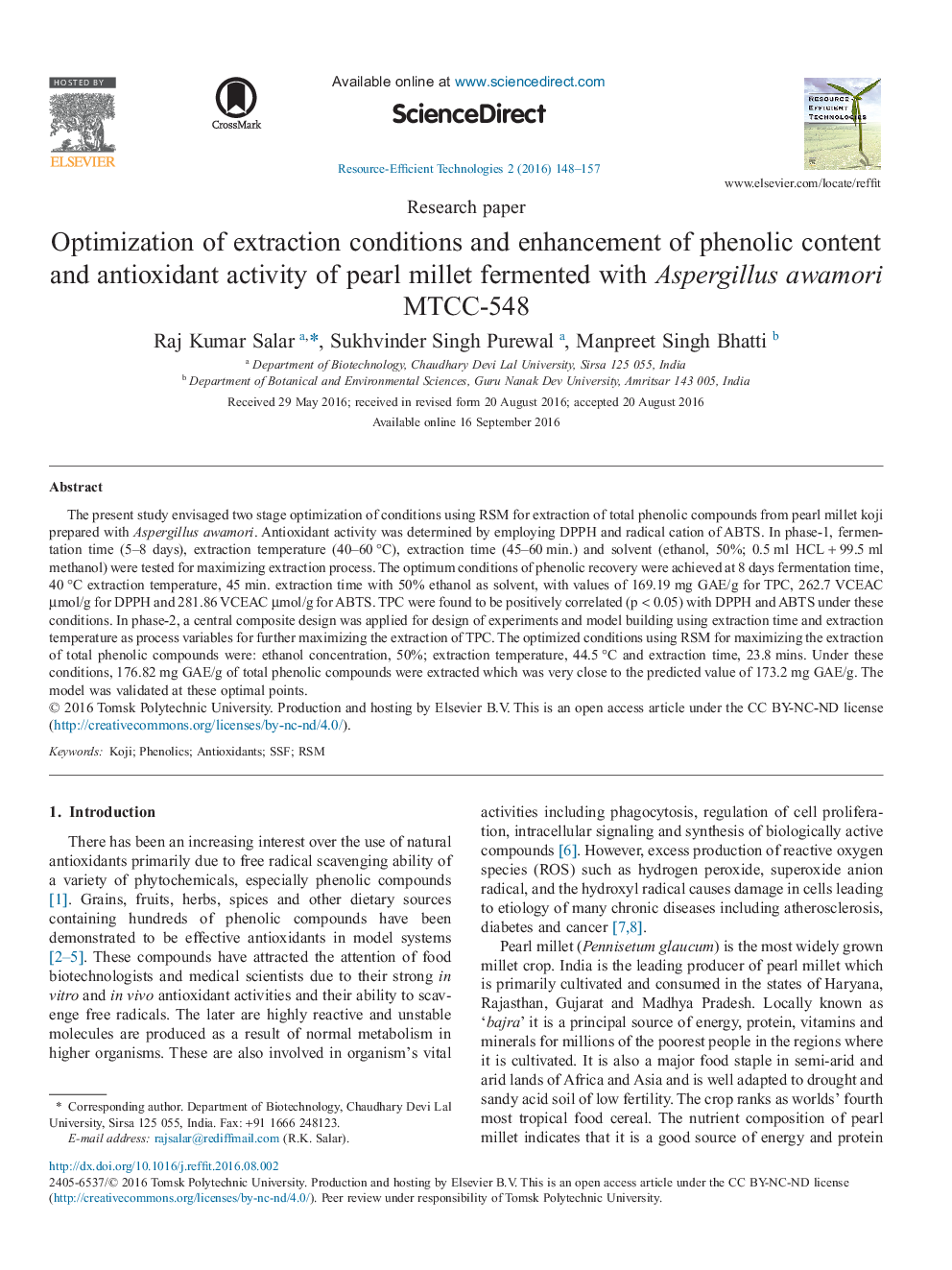| Article ID | Journal | Published Year | Pages | File Type |
|---|---|---|---|---|
| 4428254 | Resource-Efficient Technologies | 2016 | 10 Pages |
The present study envisaged two stage optimization of conditions using RSM for extraction of total phenolic compounds from pearl millet koji prepared with Aspergillus awamori. Antioxidant activity was determined by employing DPPH and radical cation of ABTS. In phase-1, fermentation time (5–8 days), extraction temperature (40–60 °C), extraction time (45–60 min.) and solvent (ethanol, 50%; 0.5 ml HCL + 99.5 ml methanol) were tested for maximizing extraction process. The optimum conditions of phenolic recovery were achieved at 8 days fermentation time, 40 °C extraction temperature, 45 min. extraction time with 50% ethanol as solvent, with values of 169.19 mg GAE/g for TPC, 262.7 VCEAC µmol/g for DPPH and 281.86 VCEAC µmol/g for ABTS. TPC were found to be positively correlated (p < 0.05) with DPPH and ABTS under these conditions. In phase-2, a central composite design was applied for design of experiments and model building using extraction time and extraction temperature as process variables for further maximizing the extraction of TPC. The optimized conditions using RSM for maximizing the extraction of total phenolic compounds were: ethanol concentration, 50%; extraction temperature, 44.5 °C and extraction time, 23.8 mins. Under these conditions, 176.82 mg GAE/g of total phenolic compounds were extracted which was very close to the predicted value of 173.2 mg GAE/g. The model was validated at these optimal points.
